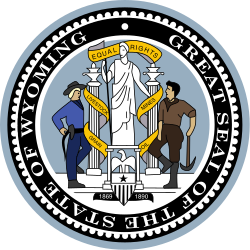| |||||||||||||||||
| |||||||||||||||||
 County results Lummis: 50–60% 60–70% 70–80% Trauner: 40–50% 50–60% 60–70% | |||||||||||||||||
| |||||||||||||||||
| Elections in Wyoming |
|---|
 |
The 2008 United States House of Representatives election in Wyoming took place on November 4, 2008. Incumbent Republican Congresswoman Barbara Cubin declined to seek re-election. Former State Treasurer Cynthia Lummis won the Republican primary to succeed Cubin, and advanced to the general election, where she was opposed by businessman Gary Trauner, the Democratic nominee, who had previously run for the seat in 2006. Lummis defeated Trauner by a wide margin, improving significantly from Cubin's narrow victory over him two years prior.

